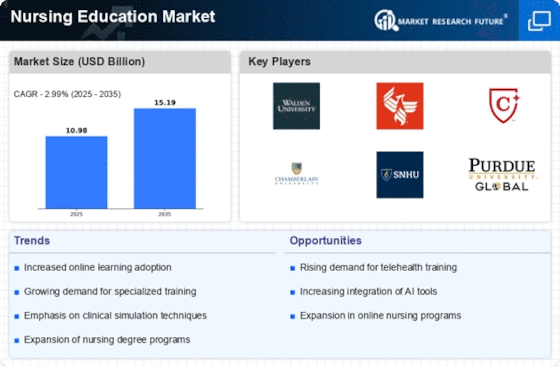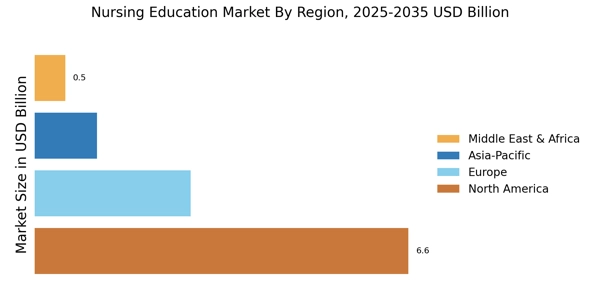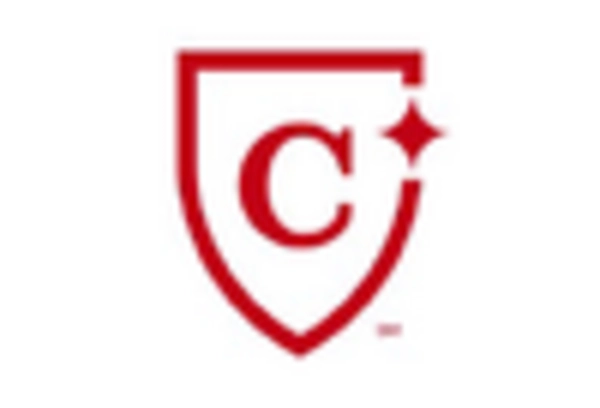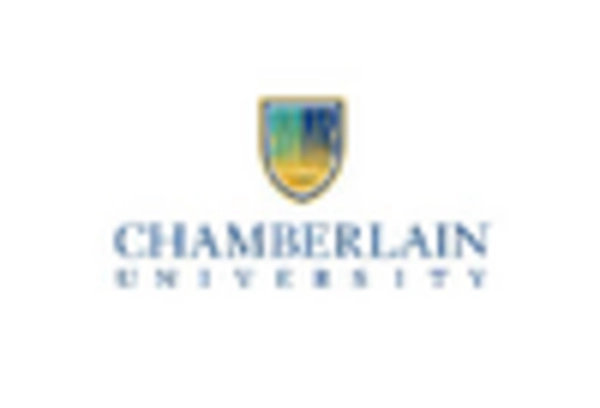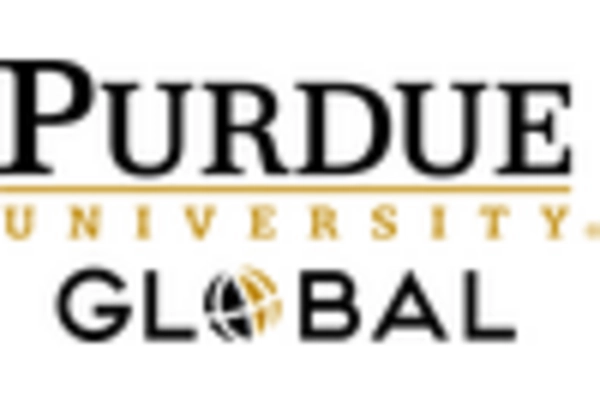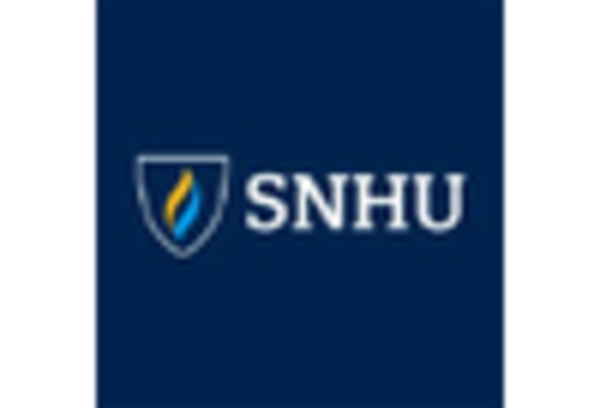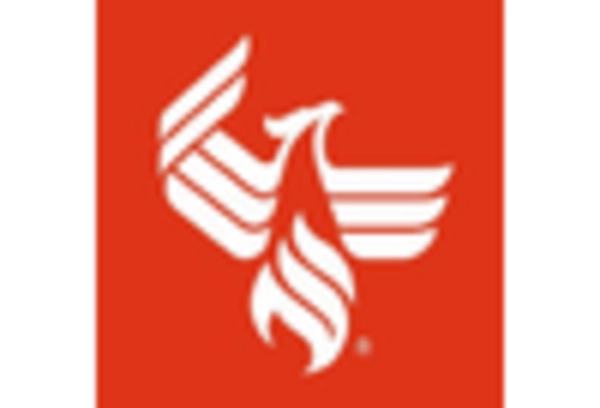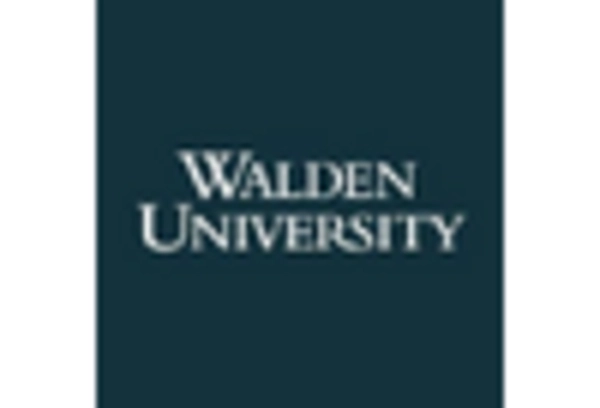Advancements in Educational Technology
The integration of advanced educational technology is transforming the Nursing Education Market. With the rise of online learning platforms, simulation-based training, and virtual reality, nursing programs are becoming more accessible and engaging. Data suggests that approximately 30% of nursing programs now incorporate some form of online education, allowing students to learn at their own pace while still receiving high-quality instruction. These technological advancements not only enhance the learning experience but also prepare nursing students for the digital tools they will encounter in their professional practice. As educational institutions continue to invest in technology, the Nursing Education Market is likely to see an increase in enrollment and improved outcomes for nursing graduates, ultimately benefiting the healthcare system as a whole.
Focus on Mental Health and Holistic Care
The Nursing Education Market is increasingly emphasizing mental health and holistic care in nursing curricula. As awareness of mental health issues rises, nursing programs are incorporating training that addresses the psychological aspects of patient care. This shift reflects a broader understanding of health that encompasses not only physical well-being but also emotional and mental health. Data indicates that nearly 50% of nursing programs now include mental health training as a core component of their curriculum. By focusing on holistic care, nursing education prepares graduates to provide comprehensive care that meets the diverse needs of patients. This trend not only enhances the skill set of nursing professionals but also aligns with the evolving expectations of healthcare consumers, ultimately benefiting the Nursing Education Market.
Increasing Demand for Healthcare Professionals
The Nursing Education Market is currently experiencing a surge in demand for healthcare professionals. This trend is driven by an aging population and a growing prevalence of chronic diseases, which necessitate a larger workforce of qualified nurses. According to recent data, the nursing workforce is projected to grow by 7% from 2019 to 2029, indicating a need for more educational programs to prepare new nurses. As healthcare systems expand, the Nursing Education Market must adapt to meet this demand, ensuring that educational institutions can provide the necessary training and resources to produce competent nursing graduates. This increasing demand not only highlights the importance of nursing education but also emphasizes the need for innovative teaching methods and curricula that can effectively equip future nurses with the skills required in a rapidly evolving healthcare landscape.
Regulatory Changes and Accreditation Standards
The Nursing Education Market is influenced by ongoing regulatory changes and evolving accreditation standards. As healthcare policies shift, nursing programs must adapt to meet new requirements set forth by accrediting bodies. For instance, the push for higher educational standards has led to an increase in the number of Bachelor of Science in Nursing (BSN) programs, with a goal of having 80% of nurses holding a BSN by 2020. This shift indicates a growing recognition of the importance of advanced education in nursing practice. Consequently, nursing schools are compelled to enhance their curricula and ensure compliance with these standards, which may lead to increased operational costs but also to improved educational quality. The Nursing Education Market must navigate these changes effectively to maintain accreditation and provide students with the best possible education.
Global Health Initiatives and Nursing Education
The Nursing Education Market is significantly impacted by global health initiatives aimed at improving healthcare access and quality. Organizations such as the World Health Organization advocate for increased investment in nursing education as a means to strengthen health systems worldwide. These initiatives often lead to funding opportunities for nursing programs, enabling them to expand their reach and enhance their offerings. For example, initiatives focused on maternal and child health have prompted nursing schools to develop specialized training programs that address these critical areas. As a result, the Nursing Education Market is likely to see a rise in partnerships between educational institutions and health organizations, fostering collaboration that enhances the quality of nursing education and ultimately improves health outcomes in communities.


